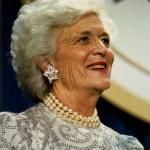The regulatory concerns about genetic modification of animals that I wrote about a while ago have moved towards a Congressional spotlight.
Other Science News
Alex Azar, our Health and Human Services Secretary, was readmitted to the hospital two days after being discharged with diverticulitis.
More than likely, you are well acquainted with Strep throat testing.
On any given day, about 1 in 20,000 to 1 in 10,000 eggs are contaminated with the bacteria Salmonella. However, for Rose Acre Farms, the second-largest egg producer in the United States, this is not your average day.
For patients awaiting an organ donor the odds are not in their favor. 120,000 patients with need, about 10,300 donors with a gift this last year.
Jim McGrath, the post-White House spokesman for former President George H.W. Bush and First Lady Barbara Bush, just tweeted that an apparently ill Mrs.
Being a night owl could literally kill you; that's according to the latest study from nearly half a million participants in the U.K.
Christopher Wild, Ph.D., has been the director of the International Agency for Research on Cancer (IARC) since 2009 and during his tenure, the organization has been controversial.
Spring is in the air which means that flowers are blooming and the Environmental Working Group (EWG) has published their annual "Dirty Dozen."
It's that time of year again.











